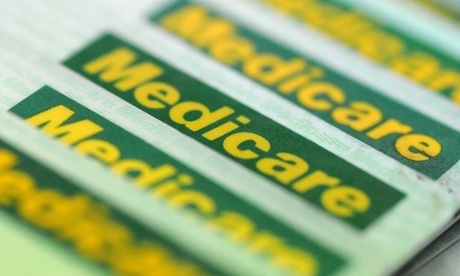
Welfare groups have called for the scrapping of the private health insurance rebate (PHIR) as an easy cost-saving measure, after the government backflipped on a health budget policy.
The health minister, Sussan Ley, on Thursday announced that the government would back down on its policy of cutting rebates to doctors for consultations lasting less than 10 minutes.
The withdrawal of the savings measure leaves the government $1bn out of pocket over four years.
The Australian council of social service (Acoss) welcomed the dumping of the Medicare rebate cut and offered the government some cost cuts of its own.
Acoss said scrapping measures such as the PHIR and the extended Medicare safety net, and tightening legislation on the pharmaceutical benefits scheme would save nearly $9bn.
“A GP co-payment, including through cuts to rebates for GP visits, isn’t ‘serious reform’ as the prime minister has it. It’s a straight-out cut that directly undermines the vital role of the GP in reducing chronic illness, and misses the point about where the most wasteful expenditure lies,” the Acoss chief executive officer, Cassandra Goldie, said.
“We need to see the full picture on health expenditure and canvas a much wider range of options before big decisions are made.
“The government needs to start again on health policy, and give top priority to supporting a decent universal health system, which is cost-effective.”
The PHIR was “wasteful” and should be scrapped, Goldie said, adding that dumping the policy would save $6.6bn.
“The PHIR has failed in its promise to increase private health insurance and take pressure off public hospitals. It disproportionately benefits people on higher incomes who can afford private cover in the first place, and has been a significant factor in driving up costs without any evident gain in achieving its initial policy intent,” Goldie said.
As of September more than 13m Australians, or 55% of the population, had some form of private health cover.
The head of the private insurance intermediaries association, David Wright, warned that getting rid of the rebate would would result in a “dramatic” drop-off in the number of privately insured Australians.
He argued that, in turn, could cost the government more, as patients moved to the public system.
“There would be an impact on the public health sector,” Wright said. “The private sector must be robust.”
But Wright acknowledged that the Medicare system needed reform.
“In its current form we all agree that it’s not sustainable,” he said. “There are enormous efficiency gains to be made in the health system.”
The Gillard government introduced means testing to the PHIR in 2012. The prime minister, Tony Abbott, has pledged, both in opposition and in government, to reinvest in private health once the budget is back in surplus.
